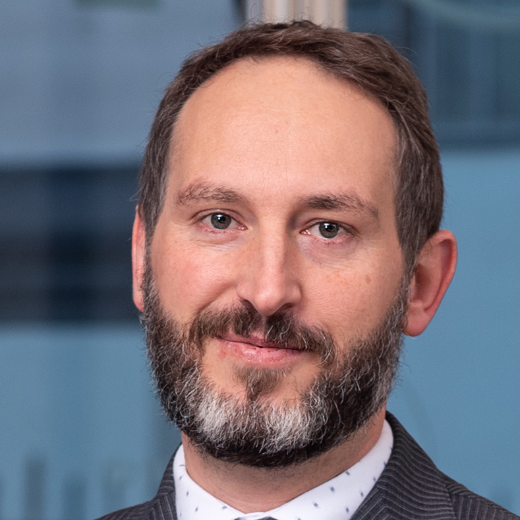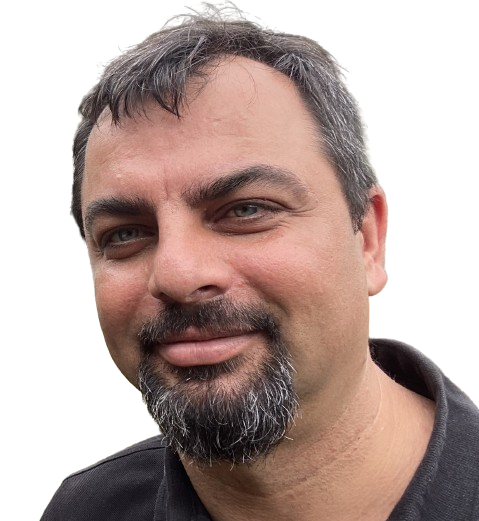Plenary Speaker I
Prof. Luiz Moutinho
University of Suffolk, UK
Title: Futures on Industrial Engineering
Abstract: The presentation starts by addressing three important
areas -Sensor technology, Smart production and Sustainability. Agile
Manufacturing, Smart solutions and Adaptive Production Scheduling are covered
next. Other concepts to be dissected are the Agile Mindset, Immersive Techs,
Hyper and Cognitive Automation. Other areas to be discussed include, Robotics,
HCI-HMI, Generative Design and Autonomous Systems, as well as Virtual Eng and
Prototyping .Finally, there will be insights on Bioremediation, Miniaturisation,
Industrial IoT and Multi-robot Systems.
Biodata: Prof. Luiz Moutinho (BA, MA,
PhD, MAE, FCIM) is a Visiting Professor of Marketing at Suffolk Business School,
Faculty of Arts, Business and Applied Social Science, University of Suffolk,
Ipswich, England, UK, and at The Marketing School, Portugal and Adjunct
Professor of Marketing, GSB, FBE, University of the South Pacific, Suva, Fiji.
In 2020 he was elected as the member of The Academia Europaea. In 2017 he
received a degree of Prof. Honoris Causa from the Univ. of Tourism and
Management Skopje, North Macedonia.
During 2015 - 2017 he was professor of BioMarketing and Futures Research at the
DCU Business School, Dublin City University, Ireland. This was the first Chair
in the world on both domains - BioMarketing and Futures Research. Previously,
and for 20 years, he had been appointed as the Foundation Chair of Marketing at
the Adam Smith Business School, University of Glasgow, Scotland.
Professor Moutinho completed his PhD at the University of Sheffield in 1982. He
has been a Full Professor for 32 years and has held Visiting Professorship
positions at numerous universities worldwide. He is the Founding Editor-in-Chief
of the Journal of Modelling in Management (JM2) and Co-editor-in-Chief of the
Innovative Marketing Journal.
His main areas of research interest encompass marketing, management and tourism
futurecast, artificial intelligence, biometrics and neuroscience in marketing,
evolutionary algorithms, human-computer interaction, the use of artificial
neural networks in marketing, modelling processes of consumer behaviour, futures
research.
Prof. Moutinho has given keynote speeches, lectures, seminars, talks, etc. in 46
countries worldwide.
Prof. Moutinho has 36 books published, over 157 articles published in refereed
academic journals. He has 14,731 academic citations, the h-index of 58 and the
i10-index of 151 (Google Scholar, Sept. 5th, 2022).
Plenary Speaker II
Prof. Erwin Rauch
Free University in Bolzano, Italy
Title: The Sustainable Factory: Strategies
and Challenges for a Green Transition of Industry
Abstract: The global transition toward sustainability is reshaping
industrial production, with factories at the epicenter of this transformation.
This keynote, "The Sustainable Factory: Strategies and Challenges for a Green
Transition of Industry," explores the critical role of sustainable manufacturing
in addressing climate change, resource depletion, and societal demands for
greener practices.
The presentation will examine strategies for designing a sustainable factory,
including the integration guidelines and standards like the European Standards
for Sustainability Reporting (ESRS) addressing renewable energy, circular
economy principles, advanced digital technologies, and green supply chain
management. Particular focus will be given to how these strategies drive both
environmental and economic benefits, fostering resilience and competitiveness in
a rapidly changing regulatory and market landscape.
However, the journey toward sustainability is not without its challenges. The
keynote will discuss key obstacles, including technological barriers,
bureaucracy hurdles, workforce adaptation, and the complexities of implementing
systemic change across diverse industrial sectors. Real-world case studies and
data-driven insights will highlight both successes and lessons learned,
providing actionable guidance for industry leaders, policymakers, and
researchers.
Ultimately, this keynote aims to spark meaningful dialogue and collaboration on
the pathways to a sustainable industrial future, offering a compelling vision
for how factories can become catalysts for global environmental and economic
transformation.
Biodata: Erwin Rauch received his B.Sc. in Logistics and
Production Engineering from the Free University in Bolzano (Italy). He also
holds a M.Sc. in Mechanical Engineering from the Technical University Munich
(TUM) and a M.Sc. in Business Administration from the TUM Business School. He
obtained his Ph.D. degree in Mechanical Engineering from the University of
Stuttgart with summa cum laude. Currently he is an Endowed Professor for Smart
and Sustainable Manufacturing at the Free University of Bolzano. In addition he
is the Head of the Smart Mini Factory laboratory for Industry 4.0. He is also
the author of over 200 scientific contributions and an expert/member of various
associations and organisations (Associate Member EuroScience, Expert Group World
Manufacturing Forum, EPIEM Steering Board).
Plenary Speaker III
Prof. Cristian Mahulea
University of Zaragoza, Spain
Title: From
Clinical Data to Optimized Healthcare Systems Management
Abstract: The rapid digitalization of healthcare systems has
enabled hospitals and other medical institutions to collect vast amounts of
clinical data. However, effectively utilizing this data to improve healthcare
delivery and resource management remains a significant challenge. This plenary
introduces a novel methodology that transforms raw clinical data into actionable
insights through process mining. By analyzing logs of patient data, clinical
pathways are derived in a manner similar to identifying processes in
manufacturing systems.
Unlike manufacturing, where multiple tasks can run in parallel, clinical
pathways are sequential, reflecting the step-by-step nature of patient care. Our
methodology generates a formal model of these pathways using a specialized class
of Petri nets enriched with probabilities and temporal information. By
integrating resource utilization into the model, this approach facilitates
optimizing resource allocation and determining the minimum number of resources
required for specific scenarios.
Furthermore, clinical pathways without resource annotations offer medical
professionals a structured view to ensure that all necessary activities are
performed for a patient—no more and no less—contributing to efficient and
precise care delivery.
A real-world case study from a hospital in Zaragoza demonstrates the
applicability and impact of this approach, showcasing how clinical data can
drive improvements in healthcare system management and patient outcomes.
Biodata: Cristian Mahulea received his B.S. and M.Sc. degrees in control engineering from the Technical University of Iasi, Romania, in 2001 and 2002, respectively, and his Ph.D. in systems engineering from the University of Zaragoza, Spain, in 2007. Currently, he is a Full Professor at the University of Zaragoza, where he chaired the Department of Computer Science and Systems Engineering from 2020 to 2024. He has also served as a visiting professor at the University of Cagliari, Italy. His research interests include discrete event systems, hybrid systems, mobile robotics, and healthcare systems. He has been a Visiting Researcher at the University of Sheffield (UK), Boston University (USA), University of Cagliari (Italy), and ENS Paris-Saclay (France). Cristian has served as an Associate Editor for IEEE Transactions on Automation Science and Engineering (TASE) and IEEE Control Systems Letters (L-CSS). He is currently an Associate Editor for IEEE Transactions on Automatic Control (TAC), the International Journal of Robotics Research (IJRR), Discrete Event Dynamic Systems: Theory and Applications (JDES), and IEEE Robotics and Automation Letters (RA-L). Additionally, he was the General Chair of ETFA 2019.
Invited Speaker I
Speakers in 2026 to be announced soon......


